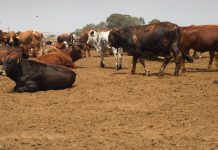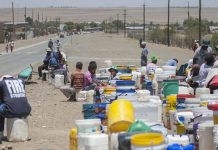
/
RSS Feed
The United States has deported five convicted foreign nationals—described by officials as “criminal illegal aliens”—to the southern African kingdom of Eswatini, in a move drawing both domestic and international attention.
The deportees, originally from Vietnam, Jamaica, Laos, Cuba, and Yemen, had been convicted of serious crimes including child rape and murder, according to the US Department of Homeland Security (DHS).
“These individuals are so uniquely barbaric that their home countries refused to take them back,” said DHS Assistant Secretary Tricia McLaughlin in a statement posted on X (formerly Twitter). She referred to the deportees as “depraved monsters” who had been “terrorizing American communities”.
Eswatini, Africa’s last absolute monarchy, acknowledged widespread public concern over the deportations. Government spokesperson Thabile Mdluli confirmed that the five individuals are being held in isolated units within the country’s correctional system, “where similar offenders are kept”.
“The nation is assured that these inmates pose no threat to the country or its citizens,” Mdluli said, adding that Eswatini is working with the United Nations’ International Organization for Migration (IOM) to facilitate the deportees’ eventual transfer to their countries of origin.
The flight marks one of the latest examples of what the Trump administration has termed “safe third country” deportations—transferring individuals to nations that are not their home countries. It follows a recent deportation of eight migrants from various countries to South Sudan, despite only one having ties to the country.
The policy has provoked criticism from human rights advocates who say it risks violating international norms, especially when deportees have no connection to the countries receiving them.
Eswatini, formerly known as Swaziland, is a small, landlocked country bordered by South Africa and Mozambique. It has been ruled by King Mswati III since 1986.
The US Supreme Court recently cleared the way for the Trump administration to resume deportations to third countries. Reports indicate that Rwanda, Benin, Angola, Equatorial Guinea, and Moldova have also been considered or contacted regarding similar arrangements.
In April, the US revoked visas for South Sudanese nationals, blaming the country for delays in repatriating its citizens. Yet South Sudan recently agreed to house eight deported men, none of whom were in handcuffs, and only one of whom was South Sudanese.
Meanwhile, Nigeria has publicly rejected requests to accept Venezuelan deportees or third-country nationals, with a senior government official saying the country “has enough problems” of its own.
President Donald Trump has made mass deportations a central part of his political agenda. While he has emphasized removing people living in the US illegally, his administration has also targeted those on student visas, refugees (with the exception of white South Africans), and recipients of temporary work permits and humanitarian protections granted by previous administrations.
Immigration enforcement raids have resumed as part of this broader crackdown, as the administration continues to seek international partners to carry out its evolving deportation strategy.














